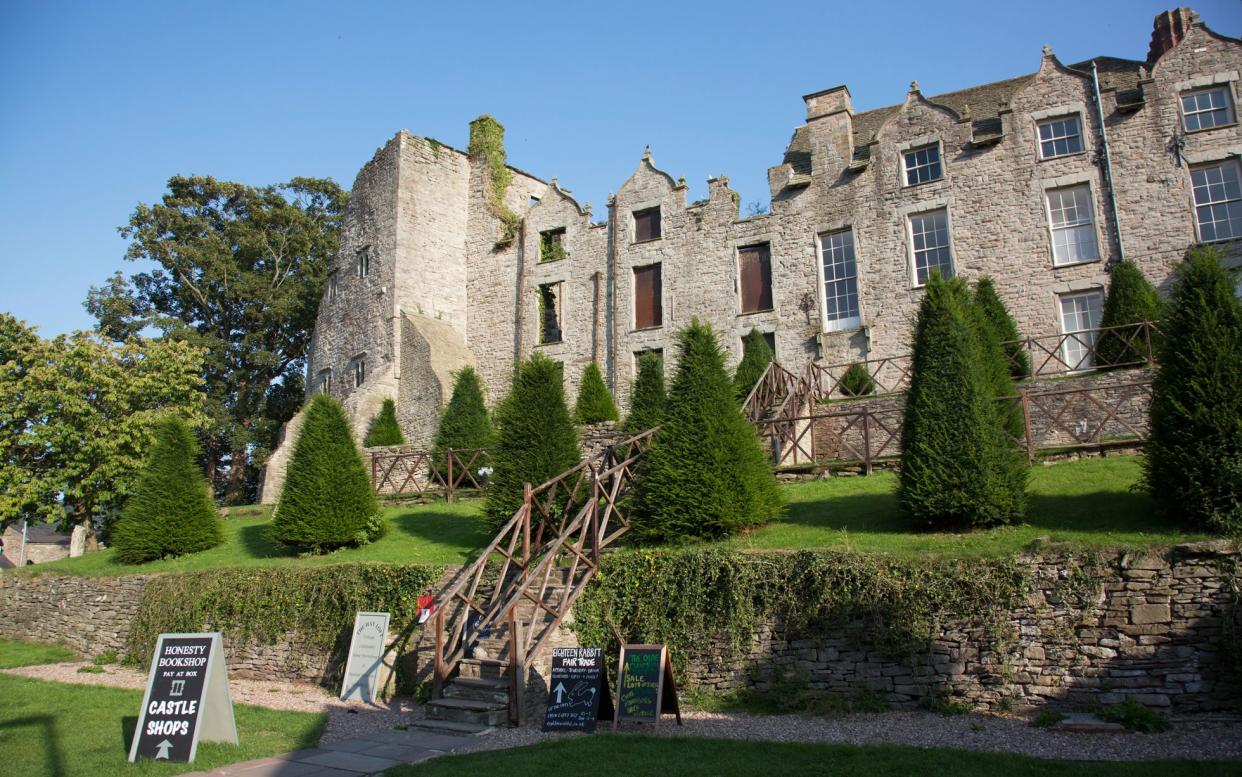The popular Welsh town that still feels like an independent kingdom

Different towns have different niches. You take your family to Newquay if you want to surf, to Bath for Roman ruins, to Stratford upon Avon for Shakespeare. And if you can’t stand any of them and you simply want to curl up with a book, you take them to Hay-on-Wye, a little Welsh market town where 1,600 residents share 20-ish bookshops and a seemingly infinite number of cosy reading crannies.
On the face of it, those numbers don’t make sense. Surely those bookshops can’t stay solvent. Are they all missing an economics shelf? Is the town run by bibliophile thugs who pummel non-compliant shopkeepers with the Shorter Oxford English Dictionary?
The truth, as you probably know, is that Hay has a big springtime literary festival every year, attracting hordes of middle-class bookworms. To these bookworms, Hay is an enormous, rosy apple, ripe for the burrowing-into. Outside festival season, it remains a reader’s haven (though there’s still time to book tickets for the festival’s smaller sibling, the Hay Winter Weekend; Nov 28-Dec 1).
Hay owes its bookishness to Richard Booth, the self-anointed King of Hay. Booth, who died in August aged 80, opened his first second-hand bookshop in 1962. He soon opened several more, thanks to his knack of picking up unwanted collections at knockdown prices, and championed Hay as a town of bookselling. At one point, it had 30 bookshops.
Sometime in this era, Booth declared himself King of Hay, and gave peerages and honours to his fellow townsfolk. His bookselling empire eventually crumbled, but not before he’d made Hay the literary town we know today. The festival wasn’t his idea, but the ecosystem in which it flourished was his.

Hay still feels something like an independent kingdom. It’s miles from any big town, and girdled by the River Wye to the north, the Brecon Beacons national park to the south and Dulas Brook, which is the notional border between Wales and England, to the west. I visited last week, on the kind of late-autumn day where the air is cold but the sun is low and bright, and felt as if I was in a university town without students, or a library without walls.
Even the coffee shop I started at, Isis, had a few books for sale. The owner, who raised Hay’s flag for Booth and is a knight of this little realm, admits to taking the name off the front of the café. “People were constantly taking pictures in front of the word ‘Isis’”, he says with some amusement.
As for the rest of the town, well… if you don’t like books, Hay has nothing for you. You are as welcome in Hay as Jeff Bezos, scourge of bookshops. Well, there’s a nice line in country clothing, I suppose. You could kit yourself out in thornproof tweed and go for a hike in the Beacons. You could canoe in the Wye. You could drive to the top of Hay Bluff, a looming green outpost of the Black Mountains around whose steep sides creep wind-ruffled Shetland ponies. You can’t visit the castle at the moment though, because it’s closed for repairs (grand designs for a restoration are in train).

Even if you’re bored by the faux-bohemian fleeciness of the place, you’ll probably agree that Hay has an uncommonly strong local identity. Booth, a bookseller told me, “could be a pain in the a---, but he was kind”; he was also a visionary, a man who showed us that high streets don’t all have to be the same and that towns can be as different from each other as the people who live in them. I can’t wait to come back. The king is dead; long live the kingdom.
The pioneer
Richard Booth’s Bookshop, true to its founder, demands attention – its astonishingly over-the-top exterior includes pillars, a golden lion’s head and an awful lot of burgundy – but deserves it. The shop has three floors of books and many comfy nooks for reading them.
The honesty bookshop
In the shadow of the castle there’s a long, roofed bookcase whose several hundred books are each available for £1. Leave the money in the collection box.
The café
The Granary has a cottagey, low-ceilinged feel and a good range of hot, hearty dishes.
The new bookshop
The very newest bookshop in all Hay is the Old Electric Bookshop, which is an offshoot of the excellent Old Electric Shop (which also sells books, confusingly, but a lot else). The new bookshop, decorated with rubber plants and millennial pink, sells only new books.
The castle
Hay Castle, which stands in the centre of the town, was originally constructed by the Normans but has since, quite understandably, lapsed into dereliction. It’s currently being restored, and will reopen in 2020.
The bluff
Hay Bluff is five miles south of Hay itself. It’s very close to Gospel Pass, Wales’s highest road.

Inspiration for your inbox
Sign up to Telegraph Travel's new weekly newsletter for the latest features, advice, competitions, exclusive deals and comment.


